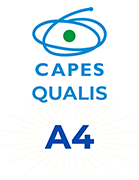Social disability:
from the literality of the standard to the affirmation of human dignity
DOI:
https://doi.org/10.46901/revistadadpu.i10.p266-281Keywords:
Fundamental rights, Human dignity, Personal conditions, Social rights, Social security lawAbstract
The social disability comes from the impairment of the worker to return to a gainful employment activity due to personal and social contingencies inability. So, this paper aims to contribute to the discussion of the subject and present a collection of judged papers that can be used to support the legal proceedings and the judgment for benefit provision. First it will be reported the legal concept of social retirement. Then, reference is made to the way that aforementioned concept must be interpreted. Since the subject of this paper is about a social right, the magistrate must have freedom to decide in order to ensure to individuals, the exercise of their fundamental guarantees. Then we point out the need to find out in this case, the peculiarities for which, each invalid passes, such as: their economic and cultural provision, level of education, age, among others. The subject of the article will further be grounded by jurisprudence granting retirement due to disability based not only on medical expertise but mainly on the insured features. Then, the role of the Federal Public Defender’s office in defense of the vulnerable invalid, assuring that the State does not forget to fulfill its social duty, is highlighted.
Downloads
Published
How to Cite
Issue
Section
License

This work is licensed under a Creative Commons Attribution-NonCommercial 4.0 International License.
A. Authors retain the copyright and grant the journal the right of first publication;
B. Authors are authorized to take additional contracts separately, for non-exclusive distribution of the version of the work published in this journal (e.g.: publishing in an institutional repository or as a book chapter), with recognition of authorship and initial publication in this journal;
C. Authors are allowed and encouraged to publish and distribute their work online (e.g.: in institutional repositories or on their personal page) at any point before or during the editorial process, since this can generate productive changes, as well as increase the impact and citation of the published work.




.jpg)

